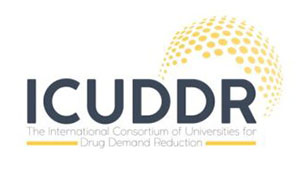Why is it so hard to implement best practices?
Published by Kim Johnson on 3.4.2019
When I was getting my first graduate degree to become a child and family therapist, I took a class in addiction studies and completed my internship in an addiction treatment program. When I was hired for my first job as a family therapist working with families at risk of losing their children to child protective services due to child abuse or neglect, I never assessed parents for substance use disorders, never raised substance use as a possible underlying cause of child neglect and never recognized obvious signs of substance misuse like lots of empty alcohol containers piled up in the kitchen sink.
Now you may think, “What a terrible therapist Kim was!” And probably you are right, but I was a new therapist practicing as part of a team and I adopted the practices of my work team rather than using the knowledge I gained through my education. And that is the norm. Our students go from our academic environment where we try to fill them with as much knowledge of best practice and science into work places whose practices may have been established for many years with little change. If our program graduates are to succeed in the workplace, they adopt the norms and fulfill the expectations of the workplace regardless of what they learned in school. Otherwise they would not stay employed for very long!
So, providing good science based education is only a first step. Engaging with community providers, offering to sponsor continuing education, to provide technical assistance in adopting new practices, to work with clinical supervisors to support students and new practitioners in utilizing evidence based practices are all necessary practices to ensure your graduates are able to use the great education that you gave them. You may be thinking, “But Kim, I can barely keep up with my workload now, how am I to conduct all these additional duties?”
That is where the expertise of the ICUDDR members comes into play. Of course you can’t do it by yourself. But our members have experience with advocacy, partnership development, and using your graduate networks to increase the use of evidence based practices in community programs. People have figured out ways of working closely with community providers so that there is a mutual benefit to bringing new ideas into the organization and helping student interns and new employees use the skills they have developed in their education program. It isn’t simple. It does take time. But what a difference it will make in patient outcomes when community programs use the latest science in their service provision. Let me know if you are interested in talking to others who are working on these same problems and we can get together a discussion group to solve them.
